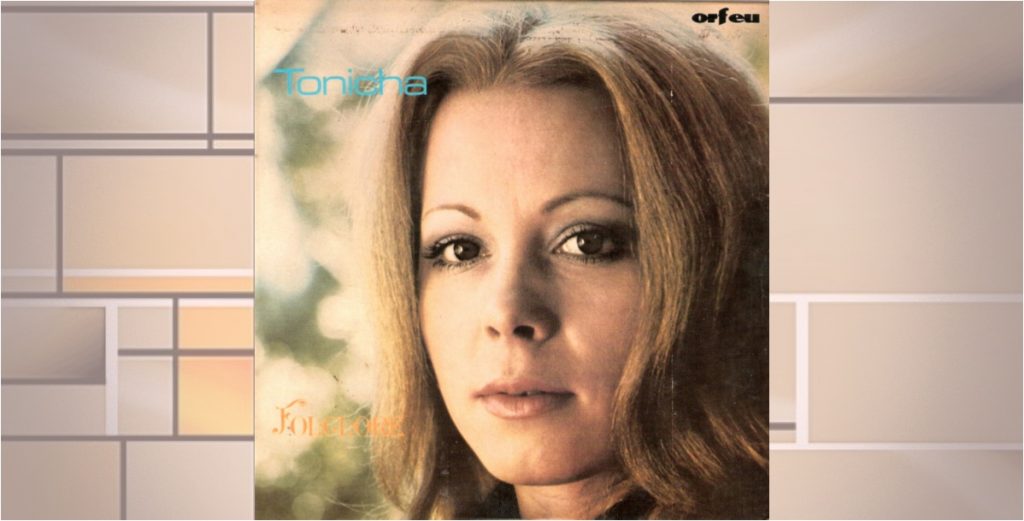Portuguese singer, full name Antónia de Jesus Montes Tonicha, was born on March 8, 1946, in Beja.
She started on the stage at Sociedade Capricho Bejense at a very young age. She took her exams at Emissora Nacional, for which she was hired and began a series of collaborations on various programs, including “Evenings for Workers”. At just 16 years old, she made her television debut and received singing lessons from actress Corina Freire.
Her professional career began in 1964, when she signed her first record contract, with the label RCA. She debuted with the album “Luar Para Esta Noite”. In 1966, she won first place at the Figueira da Foz Festival with the song “Boca de Amora”. The following year she repeated the feat, now with the theme “Tua Canção, Avozinha”.
His affirmation in the Portuguese music scene was evident in the various awards he received, among which the Oscar da Imprensa for the best songwriter of the year, the Voice of the Year trophy in Mozambique, and the Golden Microphone from Rádio Clube stood out. Portuguese. She was also voted the most popular singer by Clube das Donas de Casa magazine.
She recorded two albums with Quarteto 1111, titled La Mansarde and O Caminheiro. In 1968, she made her first appearance at the Festival RTP da Canção, finishing in second place. She also worked in cinema, where she debuted in the film Sarilhos de Fraldas, alongside António Calvário and Madalena Iglésias.
At the end of the 60s she married João Viegas, a former presenter of folklore programs on RTP. This moment determined a turning point in her career, in the sense of traditional music, such as the songs “Senhora do Almortão”, “Moda das Carreiras” and “Pezinho do Pico”. Among his biggest hits of the time were “O Resineiro” and “O Vira dos Malmequeres”.
In 1970 he moved to the Zip publishing house (by Fialho Gouveia, Raul Solnado and Carlos Cruz), and it was through this label that he participated, for the second time, in the Festival RTP da Canção, in 1971, with the song “Menina”, written and set to music by José Carlos Ary dos Santos and Nuno Nazareth Fernandes. Initially titled “Menina do Alto da Serra”, the theme was chosen to represent Portugal at the Eurovision Festival, held in Dublin (Ireland), in which it obtained 8th place. French, Italian, Spanish and English versions of the same song followed, and participation in festivals in Brazil, Greece and Yugoslavia.
The song “Menina” gave rise to the desire to record an album entitled Mulher, with songs by Joaquim Pessoa and Carlos Mendes, the result of which only saw the light of day in 1980, under the title Ela Por Ela.
In 1972 she recorded Portuguese versions of four Patxi Andion songs. Four years later, she participated for the third time in the Festival RTP da Canção with the theme “Canção da Amizade”.
In 1978 she began an extensive tour of dozens of locations from north to south of the country, preceding the recording of two of the biggest hits of her career: “Zumba na Caneca” and “Zé que Fumas”.
Among her tours with Portuguese communities living abroad, in September 1981, her participation as a guest at the Emigrant Song Festival of the Americas, which took place in Rhode Island, in the United States of America, stood out.
In 1987 she released the single Fátima, Altar do Mundo and in 1993 and 1995, respectively, she released the albums Regresso e Canções d ‘Aquém and D’ Além Tejo, followed by Mulher, in 1997.






Ora zumba na caneca 🤣🤣